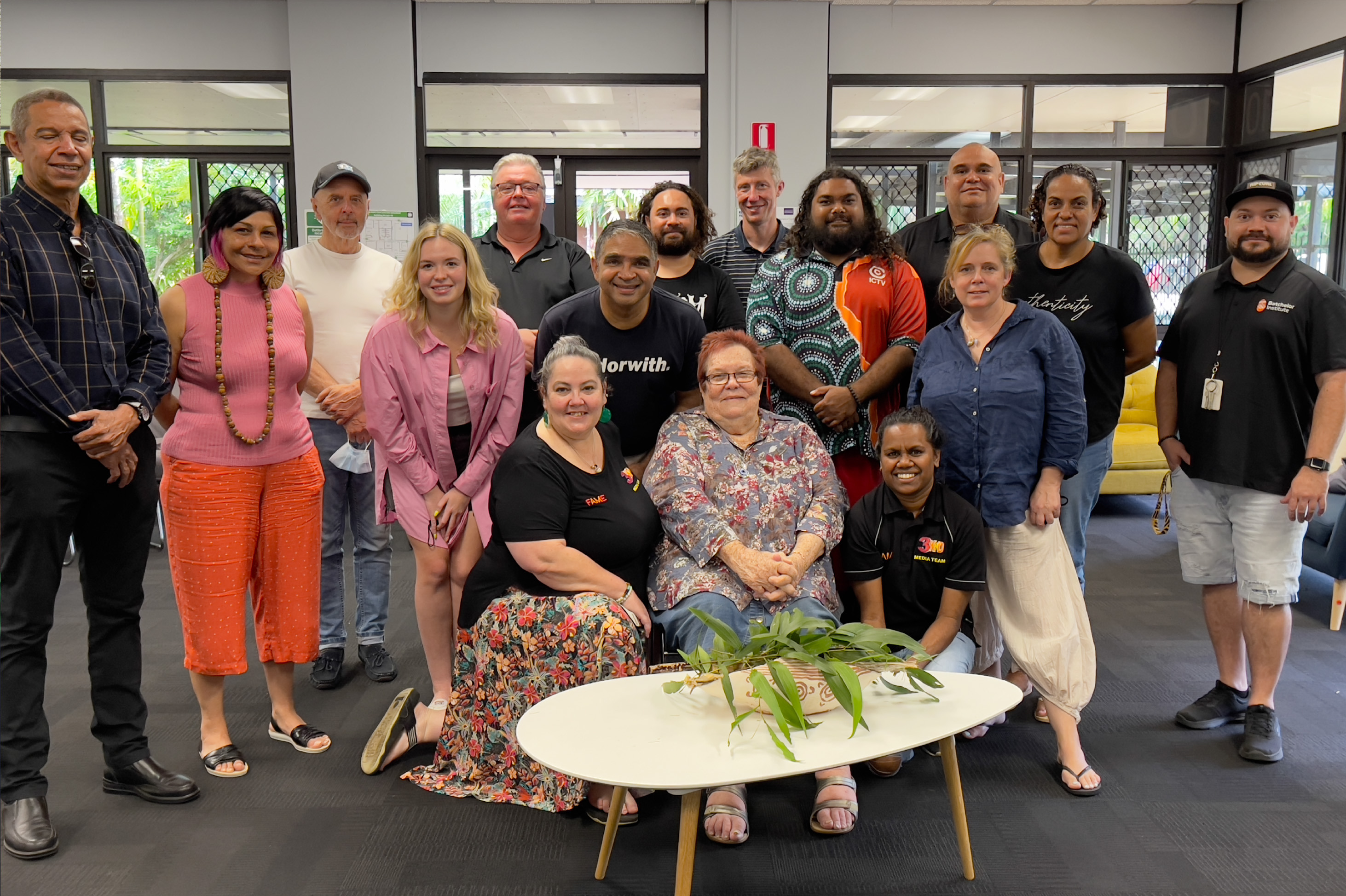

Batchelor Institute has a strong history of collaborating with partners and supporting students to access the best possible training opportunities.
A recent workshop on 19-22 July 2022 saw the Institute collaborate with the Community Media Training Organisation (CMTO) to deliver training in news, media and journalism, with a focus on developing skills in video and audio production for participants.
The intensive weeklong training workshop, held at Batchelor Campus, was delivered as part the First Nations Media Australia (FNMA) News Initiative which supports participants from First Nations media organisations around the country.
“The training outcomes were excellent,” said FNMA Training Coordinator Reece Lamshed following the workshop. “For many, it was a steep learning curve, but across most days, there was 100% attendance at the training sessions. Everyone who participated said that it was a most wonderful, happy and fulfilling experience.”
The training aimed to enable reporters to share experiences as a team, build technical skills in multimedia journalism, and become familiar with mobile equipment kits consisting of professional microphones, transmitters, iPhone frames, tripods, lights, and the necessary software.
The group tested out the kits around Batchelor Campus and at the Mindil Beach Sunset Markets, before presenting their footage as short videos on the workshop’s final day.
Ten FNMA reporters took part, hailing from Badu Island in the Torres Strait, Kununurra, Hobart, Adelaide, Melbourne, Alice Springs, and Darwin. They were supported in their training by Batchelor Institute lecturer Patrick McKenzie and assistant trainer Heath Baxter, as well as the CMTO’s Mikaela Ford.
“This was a very special workshop for me, not only as a trainer but also as a participant of the FNMA project. Opportunities like this give our people the skills and knowledge to report and share the news that matters to us, and to tell our stories our way,” said Mr McKenzie.
Participants represented the Torres Strait Islander Media Association, Waringarri Media Aboriginal Corporation, Nunga Wangga Aboriginal Corporation, 3KND Kool ‘N’ Deadly, Indigenous Community Television, and Saltwater Bird Productions.
The University of Canberra supported the project through the Amplifying Indigenous News initiative. Google Labs, Meta/the Walkley Awards, and the National Indigenous Australians Agency (NIAA) also supported the project.
The 10 reporters are now well-equipped with the full range of skills needed to produce engaging news stories in a wide range of media formats.
